In the era of Industry 4.0, IoT in healthcare is transforming the way health services are delivered by connecting medical devices, sensors, and intelligent systems. This technology enables remote patient monitoring, optimizes hospital operations, supports accurate diagnosis, manages medical data efficiently, and promotes modern medical research, providing comprehensive benefits for both patients and healthcare facilities.
What is IoT in healthcare?
IoT in healthcare (Internet of Things in Healthcare) refers to the connection of medical devices, sensors, machinery, and smart applications via the Internet to collect, transmit, and analyze health data. This technology allows hospitals, clinics, doctors, and patients to monitor health in real time, streamline care processes, and improve treatment outcomes.
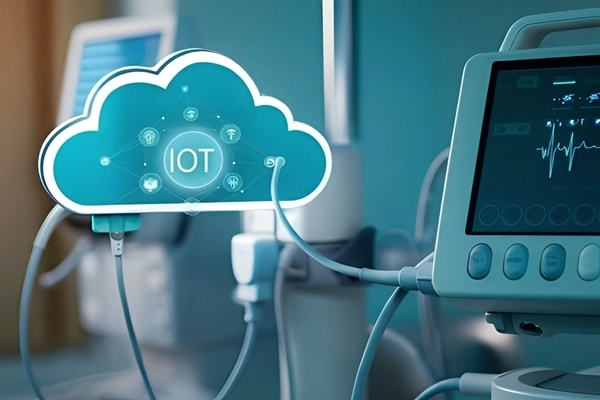
IoT in healthcare is not limited to traditional medical devices but also extends to personal applications, from smartwatches and fitness trackers to complex machinery used in laboratories and surgical procedures. As a result, IoT in healthcare is gradually becoming a crucial foundation for building a smart healthcare ecosystem.
Benefits of IoT in healthcare and patient care
IoT in healthcare offers numerous significant benefits, improving patient care quality, optimizing hospital operations, and supporting medical researchers in developing new treatment methods. These benefits are evident across multiple aspects:
Remote healthcare monitoring
With IoT in healthcare, patients can be monitored remotely through wearable devices, heart rate sensors, glucose meters, or blood pressure monitors. Data is transmitted directly to doctors, enabling early detection of abnormal signs and timely intervention without requiring hospital visits. This is especially valuable for the elderly, chronic patients, or residents in remote areas with limited access to healthcare services.
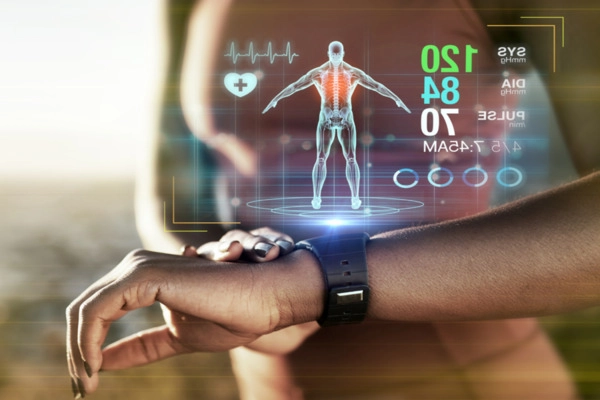
Disease prevention and control
IoT in healthcare plays a vital role in monitoring public health and detecting early outbreaks of diseases. Sensors and data collection systems alert health authorities to unusual changes in the health status of populations, allowing timely preventive measures. As a result, IoT has become an essential tool in disease control and protecting community health.
Reducing healthcare costs and time
Through remote monitoring and automated data management, IoT helps minimize the number of hospital visits, reduces waiting times, and lowers operational costs. Systems that remind patients to take medications, attend follow-ups, or monitor their health optimize treatment expenses while enhancing the quality of care.
Easy access and management of medical data
IoT in healthcare enables quick, accurate, and secure storage and access to patient data. Doctors can track medical histories, test results, medical images, and real-time sensor data, allowing timely treatment decisions. Easy data access also empowers patients to actively manage their own health.
Supporting more accurate diagnosis and treatment
By analyzing large volumes of data from IoT devices, doctors can make more precise diagnoses and personalize treatment plans for each patient. Monitoring blood pressure, heart rate, blood glucose, and other biological data helps identify health trends and predict complications before they occur.
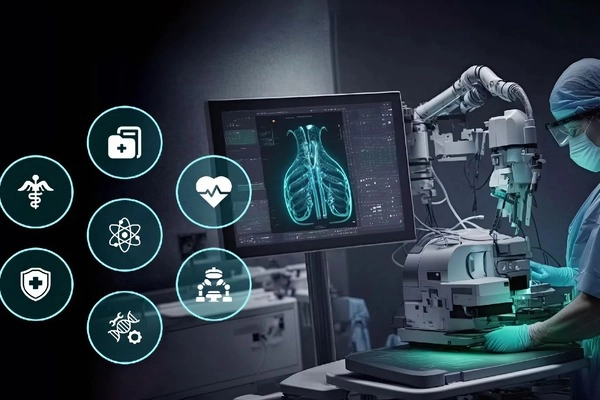
Efficient healthcare management
IoT helps hospitals and healthcare facilities manage resources, hospital beds, medications, and medical equipment more effectively. Intelligent systems can predict resource needs, coordinate staff, and optimize operational processes, thereby improving productivity and enhancing patient care quality.
Improving medication adherence and patient monitoring
IoT systems assist in reminding patients to take their medications on time, monitor side effects, and track treatment compliance. This not only improves treatment effectiveness but also reduces the risk of complications, especially for chronic conditions such as diabetes, cardiovascular diseases, or asthma.
Supporting medical research and technology development
Data collected from IoT devices provides valuable insights for researchers. Analyzing this data helps develop new treatment methods, improve medical devices, and expand smart healthcare applications, ultimately enhancing overall healthcare quality.
Practical applications of IoT in healthcare today
IoT in healthcare has been widely implemented in various areas, from personal devices to intelligent hospital management systems. These applications not only improve the quality of care but also transform how the healthcare sector operates.
IoT applications in smart laboratories
Modern laboratories utilize IoT to monitor environmental conditions, manage test samples, and track equipment remotely. Data is collected and analyzed automatically, increasing accuracy, reducing errors, and improving research efficiency. Additionally, automating many processes saves time and lowers operational costs.
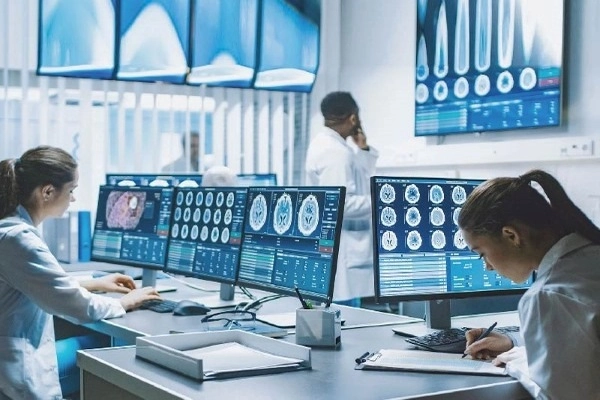
Internet of Bodies (IoB) – Connecting personal medical devices
The Internet of Bodies (IoB) is an extension of IoT that connects personal medical devices, such as fitness trackers, heart rate monitors, and biosensors, to a central data system. This enables continuous health monitoring, early detection of issues, and secure sharing of data with healthcare providers. IoB offers convenience and personalization in healthcare, empowering patients to actively manage their own health.
Surgical robots and medical support
IoT-integrated surgical robots allow remote operation, real-time monitoring of surgical procedures, and collection of patient health data during operations. This enhances precision, reduces risks, and improves treatment outcomes. Medical robots also assist doctors in performing complex procedures, reducing fatigue and optimizing human resource utilization.
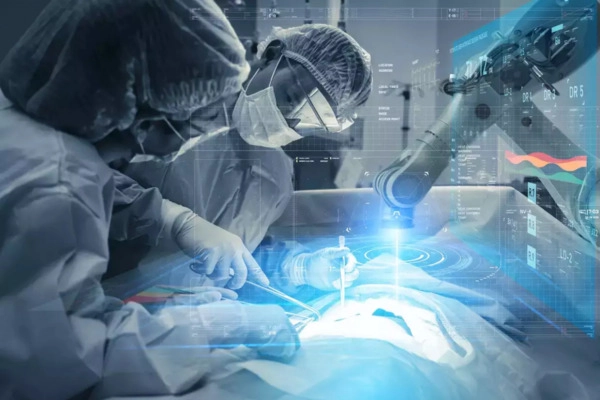
Smart hospital models
Smart hospitals utilize IoT to optimize the management of hospital beds, medical equipment, medications, and staff. Automated systems remind patients of follow-up appointments, monitor their health status, and assist in making timely treatment decisions. As a result, smart hospitals not only enhance the quality of care but also improve the experience for both patients and healthcare staff.
IoT applications in rehabilitation
IoT devices support monitoring patients’ rehabilitation progress, from physical therapy exercises to tracking heart rate, blood pressure, and mobility. The collected data is shared with specialists to adjust rehabilitation programs accordingly, helping patients recover more quickly and effectively.
Challenges in applying IoT in healthcare
Despite its many benefits, implementing IoT in healthcare still faces several significant challenges that need to be addressed:
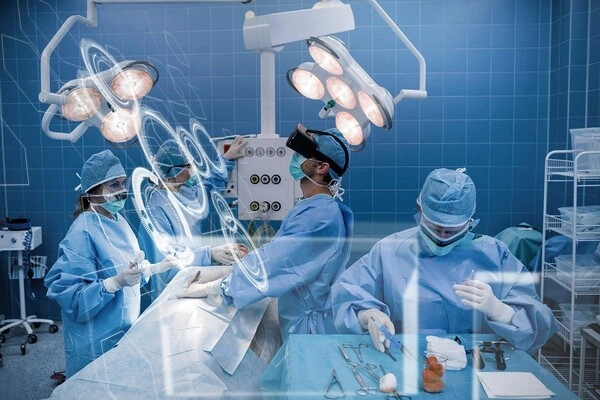
Security and privacy of medical data
Medical data is highly sensitive, and connecting devices through the Internet increases the risk of leaks, cyberattacks, or data misuse. Therefore, advanced security measures, data encryption, and strict access controls are necessary to ensure the safety of patient information.
Handling and managing large volumes of data
IoT generates massive amounts of data from thousands of devices and sensors. Storing, processing, and analyzing this data requires robust technological infrastructure, big data processing software, and skilled analytical teams. Without effective management, this enormous volume of data can overload systems and reduce operational efficiency.
Challenges in integrating multiple devices and platforms
IoT devices often operate on various platforms and protocols, making integration and data synchronization difficult. Differences in technical standards and compatibility can lead to data transmission errors or delays in patient care.
High initial investment and deployment costs
Investing in IoT devices, network infrastructure, management software, and staff training involves significant costs. However, in the long term, implementing IoT helps reduce operational expenses, improve care efficiency, and lower medical risks, providing lasting economic and social benefits.
IoT in healthcare is ushering in a new era of smart healthcare. From remote monitoring and precise diagnosis to efficient hospital management and support for medical research, this technology has proven its value. Despite challenges related to security, integration, and costs, adopting IoT in healthcare is an inevitable trend for enhancing care quality and optimizing modern healthcare systems.
